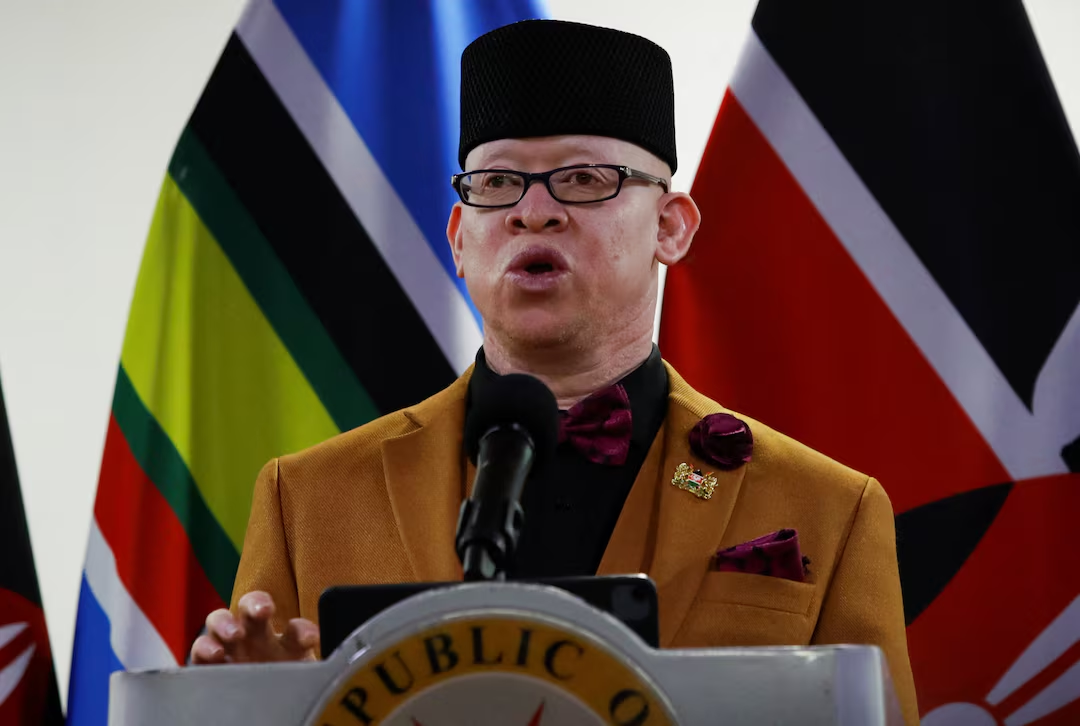Kenya’s government on Thursday ratcheted up its appeal for weeks of protests to stop and police tried to ban demonstrations in the heart of the capital Nairobi only to be overruled in court.
Police introduced the ban saying the protests, which have claimed at least 50 lives since erupting nearly a month ago, had been infiltrated by criminal gangs. But a court on Thursday suspended the ban while a case challenging it was heard.
Some activists called for people to gather on Thursday with camping gear to “occupy” Uhuru Park adjacent to the city centre, amid a heavy police presence across Nairobi.
The youth-led protests across Kenya against proposed tax hikes have continued even after President William Ruto withdrew the legislation and fired almost all of his cabinet.
Activists say they want Ruto to resign and are calling for reforms to clean up corruption and address poor governance.
The country has lost approximately 6 billion Kenyan shillings ($46 million) as a result of the demonstrations, government spokesperson Isaac Mwaura said, without explaining how he arrived at that figure.
“The president and the government at large (have) heard you loud and clear and we are ready to act on your concerns,” Mwaura said in a televised statement.
The protests, which have been organised online without the apparent support of opposition political figures, have created the biggest crisis of Ruto’s two years in power.
“We have credible intelligence that organised criminal groups are planning to take advantage of the ongoing protests to execute their attacks, including looting,” chief of police Douglas Kanja Kiricho said in a statement late on Wednesday.
“No demonstrations will be permitted in the Nairobi Central Business District and its surroundings until further notice.”
Item 1 of 4 Riot police officers take a break on their truck as pedestrians walk along Kenyatta Avenue amid anti-government demonstrations, following nationwide deadly riots over tax hikes and a controversial now-withdrawn finance bill, in Nairobi, Kenya, July 18, 2024. Riot police officers take a break on their truck as pedestrians walk along Kenyatta Avenue amid anti-government demonstrations, following nationwide deadly riots over tax hikes and a controversial now-withdrawn finance bill, in Nairobi, Kenya, July 18, 2024.
Kenya’s High Court in Nairobi suspended the police order until a case filed by public interest litigation group Katiba Institute was heard and ruled upon, the court order said.
BROAD-BASED GOVERNMENT
In his latest concession, Ruto last week pledged to set up a broad-based government, but the opposition coalition on Wednesday rejected the idea, calling instead for a constitutional convention.
The rallies began peacefully but later turned violent.
Some demonstrators briefly stormed parliament on June 25, and the police opened fire.
Ruto’s office planned “multi-sectoral” talks for this week to address the protesters’ grievances, but by Thursday there was no sign they had begun.
Most of the leading figures behind the protests have rejected the invitation, instead calling for immediate action on issues such as corruption.
“(The police and president Ruto) have no power to suspend rights guaranteed by the constitution,” activist Boniface Mwangi wrote on the social media platform X in response to efforts to ban protests.
The Communications Authority of Kenya (CA), a regulatory body, has cautioned the media against “perpetuating” violence in their coverage of the protests, “which could potentially cause widespread civil unrest in the country”.
Some outlets have “compromised objectivity and balance in the reporting of crime, security operations and/or crisis situations,” CA chief David Mugonyi wrote in a July 17 letter to a media executive.
